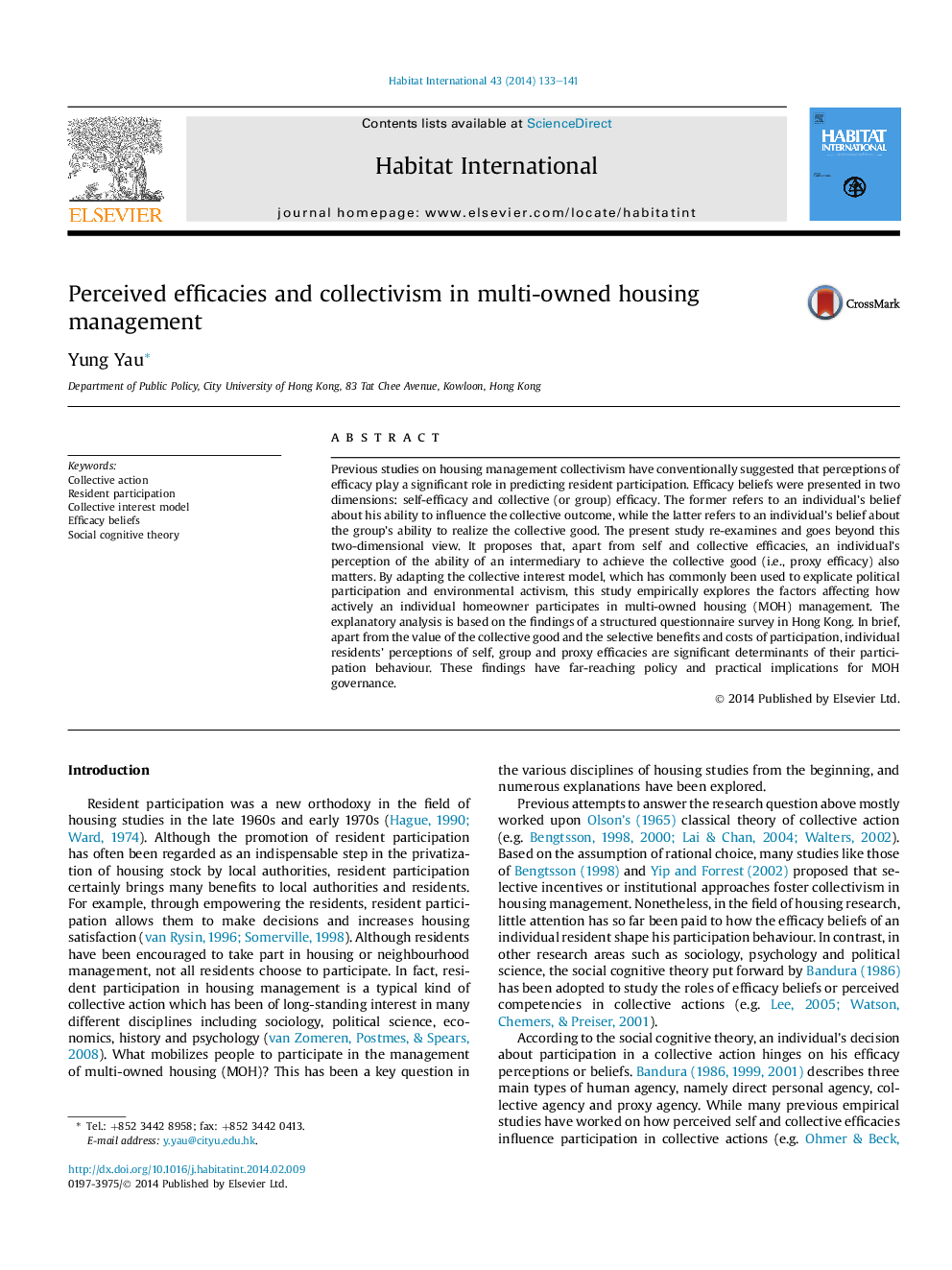| Article ID | Journal | Published Year | Pages | File Type |
|---|---|---|---|---|
| 7456378 | Habitat International | 2014 | 9 Pages |
Abstract
Previous studies on housing management collectivism have conventionally suggested that perceptions of efficacy play a significant role in predicting resident participation. Efficacy beliefs were presented in two dimensions: self-efficacy and collective (or group) efficacy. The former refers to an individual's belief about his ability to influence the collective outcome, while the latter refers to an individual's belief about the group's ability to realize the collective good. The present study re-examines and goes beyond this two-dimensional view. It proposes that, apart from self and collective efficacies, an individual's perception of the ability of an intermediary to achieve the collective good (i.e., proxy efficacy) also matters. By adapting the collective interest model, which has commonly been used to explicate political participation and environmental activism, this study empirically explores the factors affecting how actively an individual homeowner participates in multi-owned housing (MOH) management. The explanatory analysis is based on the findings of a structured questionnaire survey in Hong Kong. In brief, apart from the value of the collective good and the selective benefits and costs of participation, individual residents' perceptions of self, group and proxy efficacies are significant determinants of their participation behaviour. These findings have far-reaching policy and practical implications for MOH governance.
Related Topics
Social Sciences and Humanities
Social Sciences
Development
Authors
Yung Yau,
